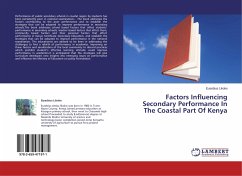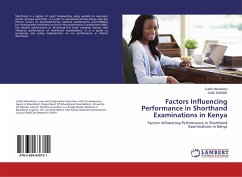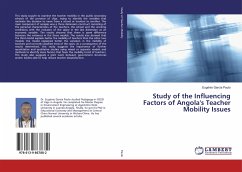This book analyses school-based-teacher-evaluation practice in secondary schools in Western Kenya. Teachers are evaluated by management and peers through class observation during instruction and analysis of their professional tools such as schemes of work, lesson guides, records of work covered, lesson notes, learners exercise books and their portfolios. In this context, the author argues that other than analysis of professional tools, the other modes of teacher evaluation are hardly conducted. Therefore, it is difficult to establish if there is proper curriculum implementation. Consequently, she recommends that head-teachers should enforce observation of teachers during instruction and the government should ensure that all schools are adequately staffed with teachers. This book is a must-read for teachers, teacher educators, education policy makers and student teachers in Kenya and beyond.
Bitte wählen Sie Ihr Anliegen aus.
Rechnungen
Retourenschein anfordern
Bestellstatus
Storno








